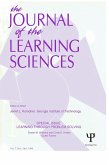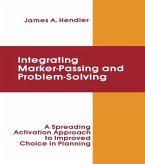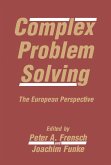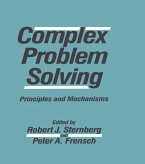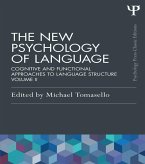A recent area of interest in the Artificial Intelligence community has been the application of massively parallel algorithms to enhance the choice mechanism in traditional AI problems. This volume provides a detailed description of how marker-passing -- a parallel, non-deductive, spreading activation algorithm -- is a powerful approach to refining the choice mechanisms in an AI problem-solving system. The author scrutinizes the design of both the algorithm and the system, and then reviews the current literature and research in planning and marker passing. Also included: a comparison of this computer model with some standard cognitive models, and a comparison of this model to the "e;connectionist"e; approach.
Dieser Download kann aus rechtlichen Gründen nur mit Rechnungsadresse in A, B, BG, CY, CZ, D, DK, EW, E, FIN, F, GR, HR, H, IRL, I, LT, L, LR, M, NL, PL, P, R, S, SLO, SK ausgeliefert werden.



